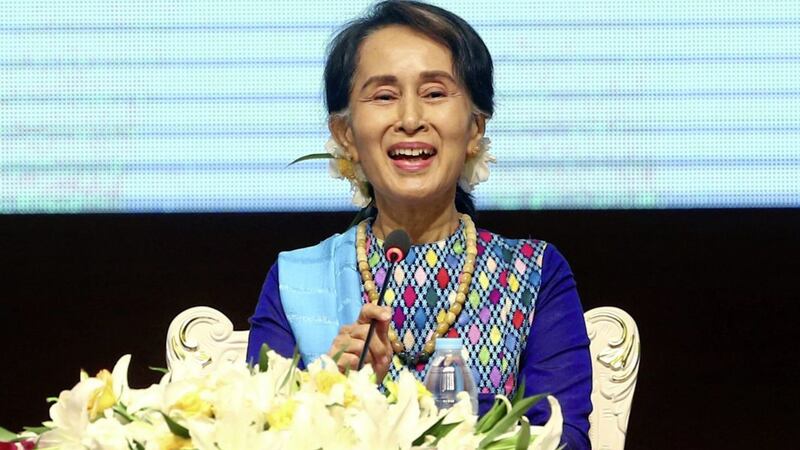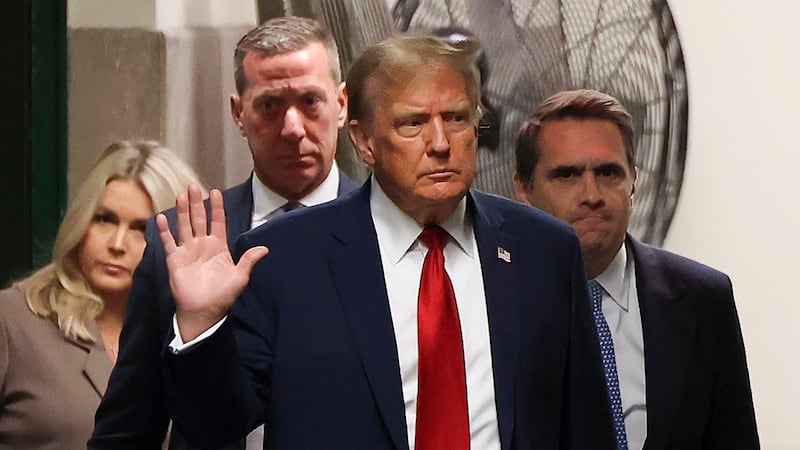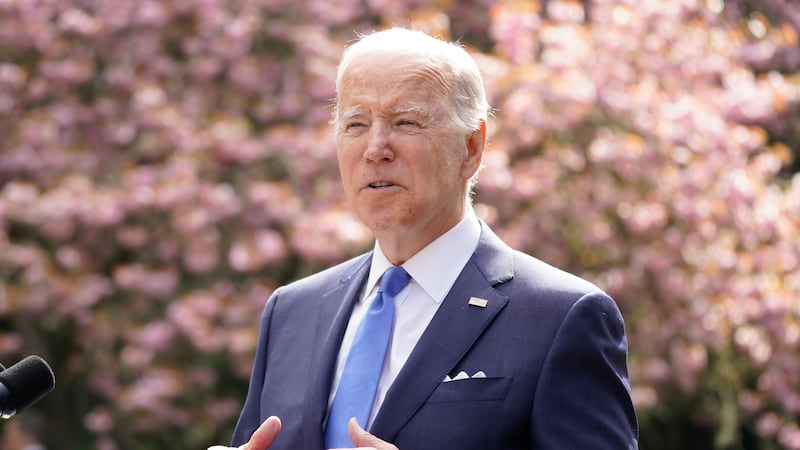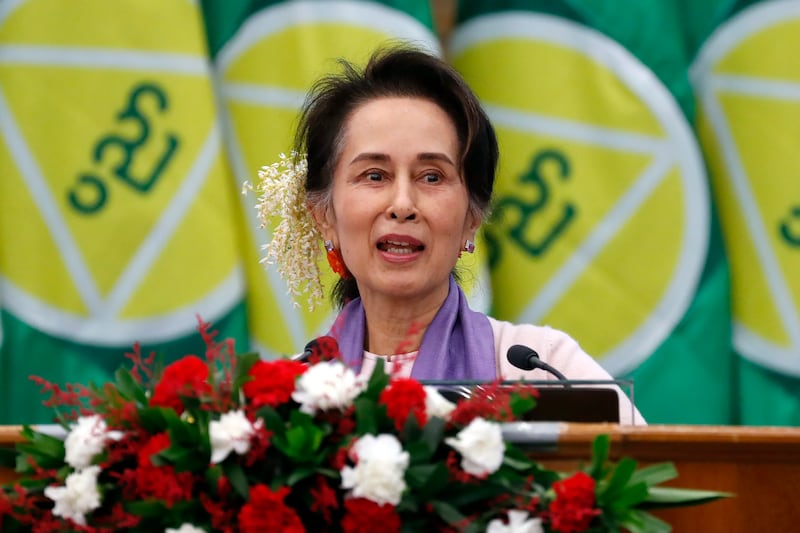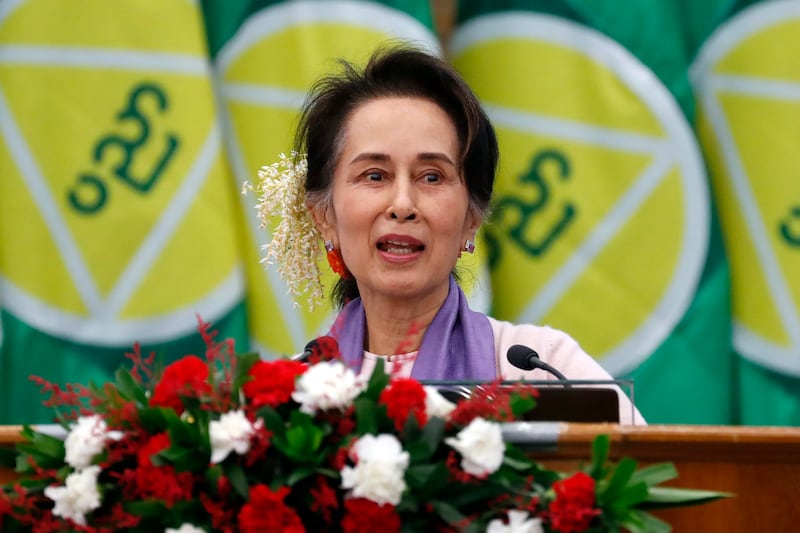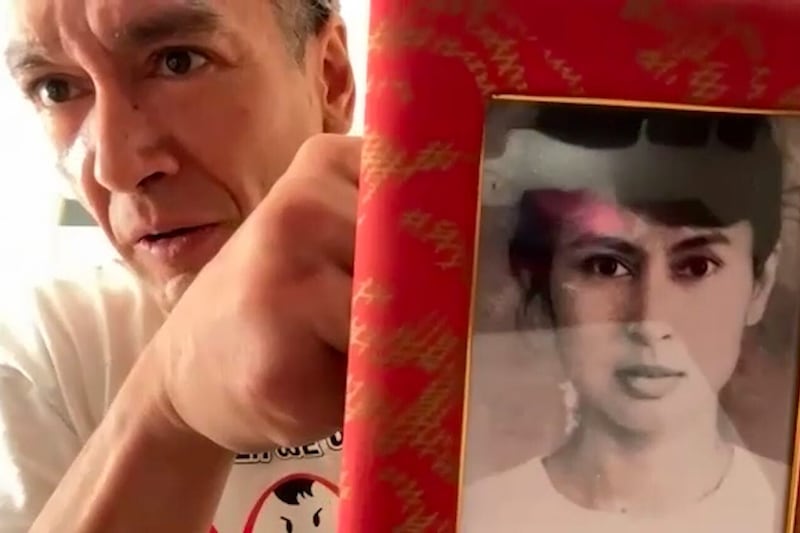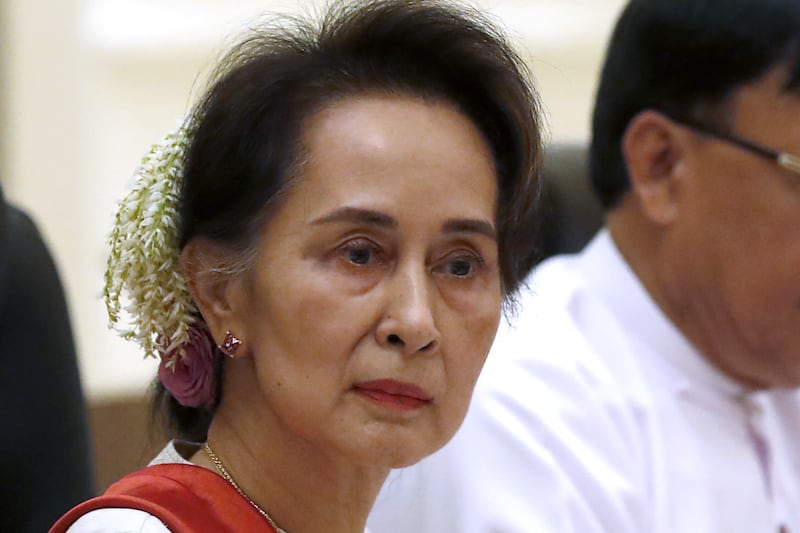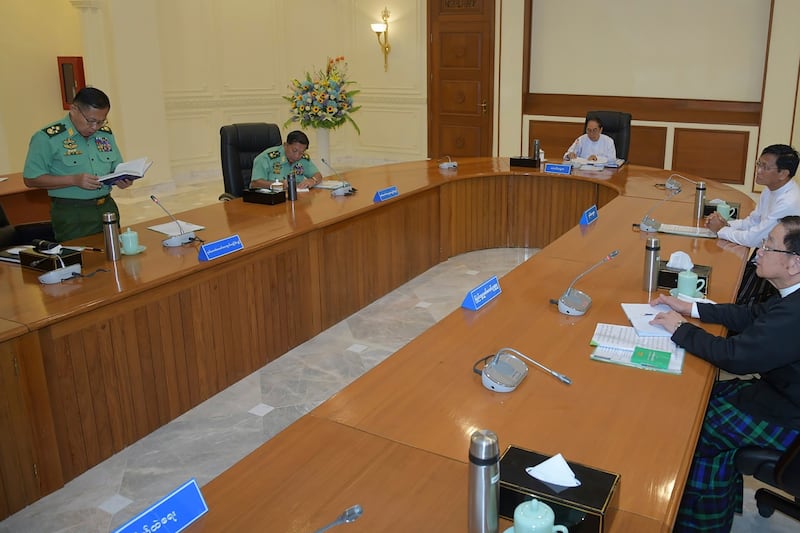Myanmar’s ousted leader Aung San Suu Kyi has appeared in court for the first time since the military arrested her when it seized power on February 1, according to reports.
One of her lawyers, Min Min Soe, told The Associated Press that Suu Kyi was able to meet with her defence team before her hearing began at a special court set up inside the city council building in Naypyitaw, the capital.
The hearing’s purpose was procedural.
Lawyers also met with Win Myint, president of the government that Suu Kyi led as state counsellor, who is a defendant on some of the same charges she faces.
Suu Kyi had been charged with several criminal offences, but her only previous court appearances had been by video link, and she had not been allowed to meet in person with any of her lawyers.
Min Min Soe said Suu Kyi had a message for Myanmar’s people to the effect that her National League for Democracy party (NLD) would stand by them.
“The main thing (she said) is that she always wishes good health and wellbeing for all the people, and she also said that since the NLD was founded for the people, the NLD will exist as long as the people exist,” said Min Min Soe said after the hearing.
“She looks fresh, healthy and full of confidence,” she added.
Monday’s hearing concerned several of the six charges Suu Kyi faces.
These are two counts of violating the Natural Disaster Management Law for violating Covid-19 pandemic restrictions during the 2020 election campaign; illegally importing walkie-talkies that were for her bodyguards’ use; unlicensed use of the radios; and spreading information that could cause public alarm or unrest.
The most serious charge that Suu Kyi faces is breaching the colonial-era Official Secrets Act, which carries a penalty of up to 14 years’ imprisonment, but that is being handled by a separate court.
Ms Suu Kyi’s supporters say the proceedings against her are politically motivated and are intended to legitimise the military’s seizure of power as well as discrediting her.
If convicted of any of the offences, she could be banned from running in the election that the junta has said it will hold within one or two years of its takeover.
The military ousted Suu Kyi’s government less than three months after her National League for Democracy party won a landslide victory in a general election that would have given it a second five-year term in office.
Before the start of democratic reforms a decade ago, Myanmar was ruled by the military for 50 years.
The junta claims it was justified in taking power because of alleged widespread electoral fraud, especially irregularities in the voting lists.
The Asian Network for Free Elections, a non-partisan poll watching organisation, rejected the military’s allegations of massive fraud in a report released last week, saying the results of last November’s voting were representative of the will of the people.
On Friday, however, the head of Myanmar’s military-appointed state election commission said his agency will consider whether to dissolve Suu Kyi’s former ruling party for alleged involvement in electoral fraud and whether those involved “should be punished as traitors”.
The junta has accused Suu Kyi of corruption and presented on state television what it said was evidence that she took bribes, but has so far only said it intends to pursue charges for that offence.
Her lawyers dismissed the allegations.
Several cases are also pending against other senior members of Suu Kyi’s party in addition to Win Myint, the ousted president.
Australian economist Sean Turnell, who served as Suu Kyi’s adviser and was also detained on the day of the army’s takeover, has been charged with violating the Official Secrets Act.
